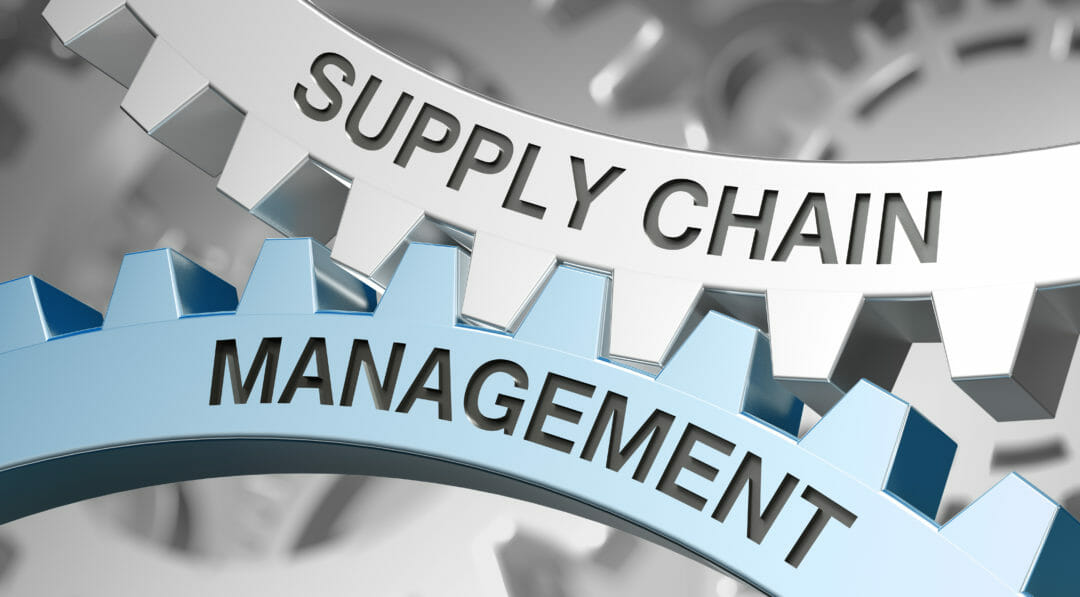Some organisations associate blockchain with cryptocurrencies or the dark web — but not as having relevance for general supply chain operations. Others, however, understand that it can be disruptive technologies that solve logistical problems in complex supply chains among larger groups of organisations.
One example of a visionary team is found in Maersk and IBM, who together launched ‘TRADELens’, the world’s first blockchain-enabled shipping solution. More than 90 organisations signed up to take part in this open standard blockchain-driven platform, including more than 20 port and terminal operators and customs authorities in the Netherlands, Saudi Arabia, Singapore, Australia and Peru. Added to that list more recently is India where, starting in July 2020, the first trials will begin of the electronic bill of lading. The solution enables organisations to interact seamlessly and securely, sharing real-time access to IoT and sensor data such as temperature control or container weight, as well as providing standardised protocols and processes.
How to control access to IoT data
Blockchain today is making halting inroads into settings where trading partners want to share a distributed ledger to facilitate and track transactions. The Farmer Direct Platform, which provides traceability of food products back from farm to fork, is partnering with Smucker’s Folgers brand to use blockchain to provide enhanced supply chain visibility to customers. In most manufacturing and industrial supply chain settings, blockchain remains on the horizon however, although it has strong potential to support processes including 3D printing, where it can help enforce intellectual property, supply chain management and the Internet of Things (IoT).
The trend shaping blockchain in supply chain management
As more sophisticated supply chains go into production with blockchain-enabled supply chains, others may consider whether the technology solves problems for them as well. There’s a lot of buzz around blockchain, but many organisations and individuals still don’t really understand where it fits into their technology stack, due in large part to the association with the cryptocurrency use case.
Some data security and trust concerns still exist around the idea of running a mission-critical supply chain in blockchain, although cryptography-secured chains were shown to provide very high levels of security. All these concerns and misunderstandings can be addressed with education. There is nothing that spurs faster learning than having to compete with an organisation already successfully using blockchain to reduce supply chain costs.
While enterprise and supply chain technologists may not trust blockchain yet, it is somewhat ironic that a lack of trust in the banking industry after the 2008 financial crisis was the original incentive for blockchain. In fact, blockchain was born as the channel to deliver Bitcoin, allowing organisations to avoid banks.
Now, a lack of trust in these same digital assets is the main hurdle to mainstream use. There are two addressable elements to improving trust in blockchain. First is education around the value of cryptography and blockchain technology. Second, when others begin to successfully use blockchain, this will also provide a platform for trust.
Traceability
The ultimate benefit that blockchain brings to supply chain management very much depends on the type and size of the supply chain. I outlined six business benefits of blockchain in a 2017 blog post, including efficiency, auditability, traceability, transparency, security and feedback. Any of these six could be the number one benefit depending on the business and their individual goals.
If I was to pick one benefit that most applies to all supply chains, it would be traceability. Being able to enable a trace of supply at any time during and after the chain has been completed can provide a competitive advantage, allowing organizations to comply with ever-changing regulations and create overall efficiencies.
Transforming industry and society: blockchain beyond the coin
The future
The next step for blockchain in supply chain management is broader adoption. It’s not a case of if this will happen, but when. In my opinion, to boost trust and provide stability, organisations must work together to establish trust-based relationships, creating diverse communities intent on delivering positive value from the blockchain ecosystem. This would also require enforceable regulatory control — enough to curb the worst of human behaviour in free markets, but not enough to stifle blockchain innovation.








